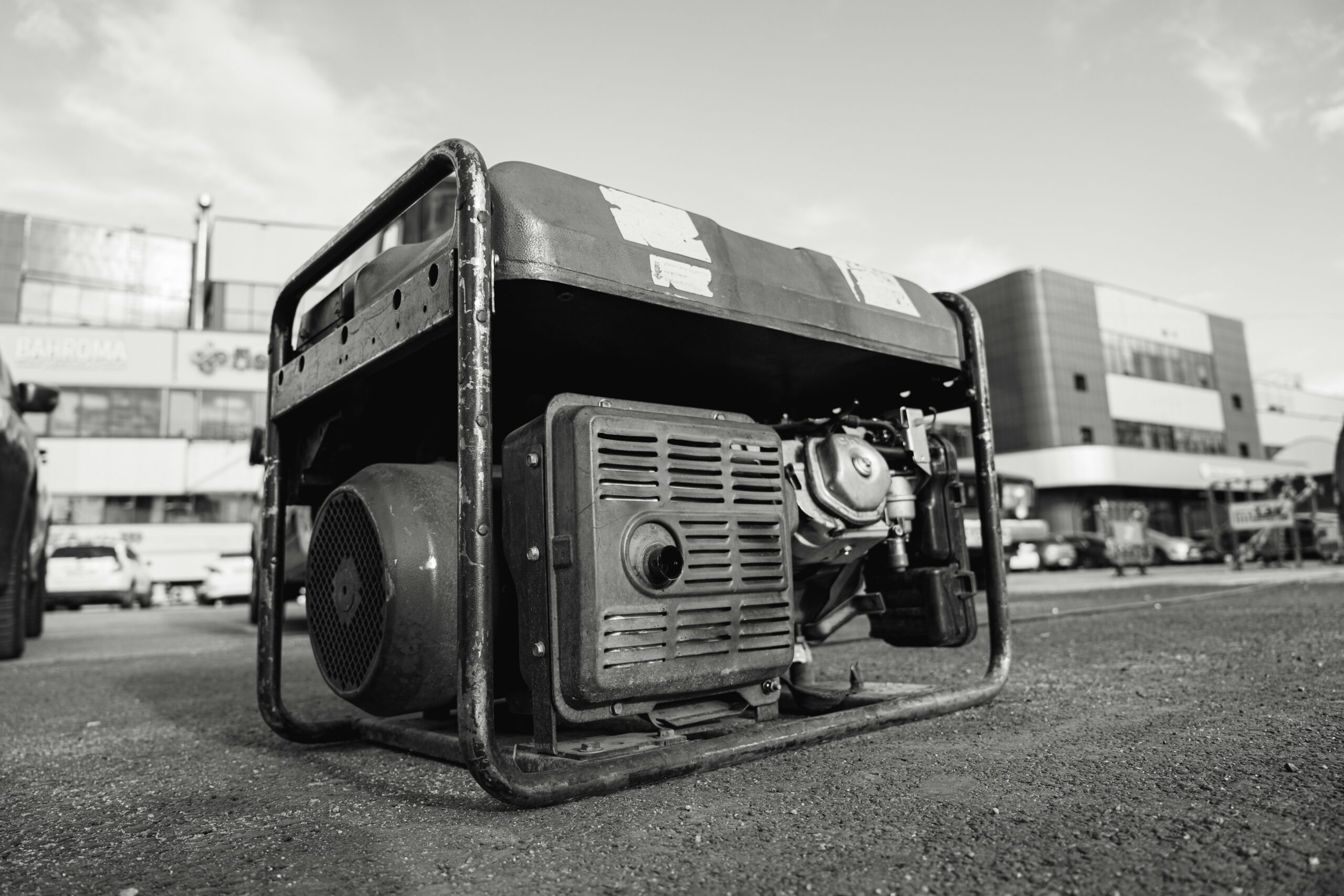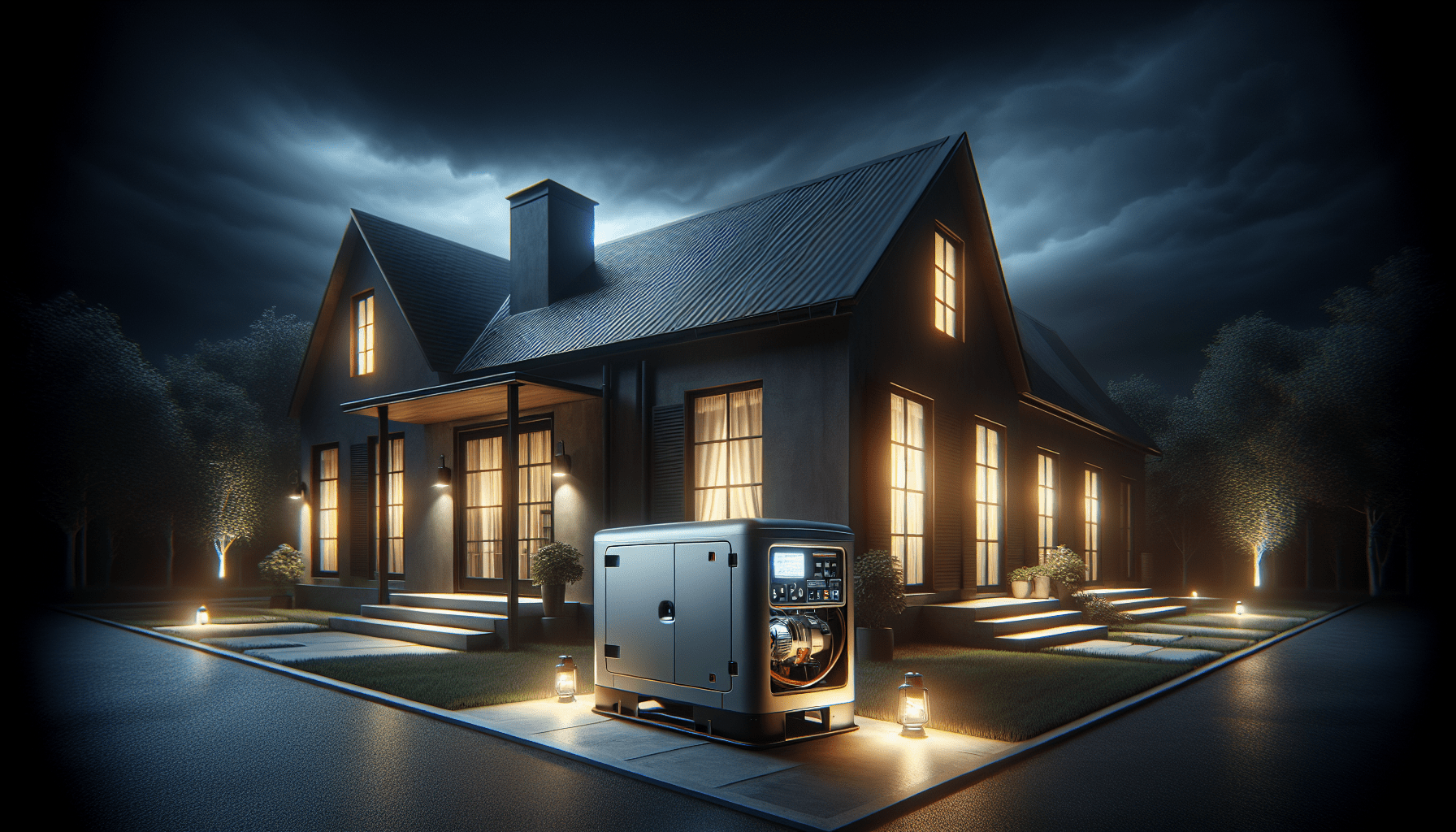Imagine feeling at ease even when a sudden storm knocks out the power in your neighborhood. “What Are The Benefits Of A Home Power Backup During Emergencies?” is an insightful article that explores how having a reliable backup power source can make all the difference during unexpected outages. You’ll discover how this essential equipment can keep your lights on, appliances running, and provide a sense of security for you and your loved ones when it matters most. Have you ever wondered what you would do during a power outage, especially during unexpected emergencies? You’re not alone. Many people face power interruptions that can disrupt everyday life, impede essential tasks, and even put your family’s safety at risk. Power interruptions can happen for various reasons, from natural disasters and storms to utility failures. The solution? A home power backup system can make all the difference.

Understanding Home Power Backup Systems
Before diving into the benefits, let’s first understand what a home power backup system is. Essentially, it’s an alternative power source that kicks in when the primary power supply fails. These systems can range from portable generators to more sophisticated setups like home battery solutions and standby generators.
Types of Home Power Backup Systems
Different types of home power backup systems offer varying levels of support and convenience. Here’s a quick overview:
| Type | Description | Pros | Cons |
|---|---|---|---|
| Portable Generators | Small, movable, and usually gasoline-powered. | Affordable, easy to transport. | Limited power capacity, requires manual start. |
| Standby Generators | Permanently installed and automatically turn on during a power outage. | High reliability, no manual operation required. | Expensive, requires professional installation. |
| Home Battery Systems | Uses batteries to store electricity for use during an outage. | Quiet, eco-friendly, can be charged using solar panels. | High initial cost, limited by battery capacity. |
Benefits of a Home Power Backup System
In the face of unexpected power interruptions, the benefits provided by a home power backup system are manifold. Let’s delve into each of them:
1. Uninterrupted Power Supply
One of the primary benefits of having a home power backup system is the uninterrupted power supply. Whether you’re working from home, running essential household appliances, or simply keeping your family comfortable, a seamless transition to backup power can be crucial.
2. Safety and Security
Loss of power can compromise your home security systems, leaving your home vulnerable. With a home power backup, you can ensure that security cameras, alarm systems, and automated locks continue to operate as intended.
3. Medical Equipment Operation
For households with members who rely on medical equipment, a power outage can be life-threatening. Devices such as oxygen concentrators or dialysis machines require a continuous power supply. A backup system ensures these essential devices keep running.
4. Food Preservation
Have you ever opened your fridge after a power outage to find spoiled groceries? A home power backup system can keep your refrigerator and freezer operational, protecting your food and saving you both money and inconvenience.
5. Keeping Communication Lines Open
During emergencies, staying in touch with loved ones, emergency services, and staying updated with news is critical. A backup system ensures that your communication devices—like smartphones, laptops, and radios—are charged and functional.
6. Minimizing Business Losses
If you run a home-based business or work remotely, a power outage can mean lost productivity and revenue. A home power backup system allows you to continue working without interruption, meeting deadlines and maintaining client communication.
7. Comfort and Quality of Life
Finally, a home power backup contributes significantly to your overall comfort and quality of life. Heating and cooling systems, lighting, and entertainment devices can keep functioning, making life feel as normal as possible despite the circumstances.
How to Choose the Right Home Backup System
Choosing the right system to suit your needs is paramount. Here are some factors you should consider:
Assess Your Power Needs
First, identify the essential appliances and systems you need to keep running during an outage. Make a list and add up the wattage requirements to know the capacity you need.
Fuel Type and Availability
Consider what type of fuel your backup system will use—gasoline, propane, natural gas, or batteries. Each has its pros and cons, as well as availability considerations in your area.
Budget Considerations
The cost of backup systems can vary significantly. Portable generators are generally more affordable, while standby generators and battery systems can require a substantial investment but offer more reliability and convenience.
Installation and Maintenance
Consider whether the system requires professional installation and regular maintenance. Standby generators often need both, while portable generators and battery systems can usually be managed with less professional intervention.
Longevity and Durability
Look for systems known for their reliability and durability, especially if you live in an area prone to frequent outages. Online reviews, warranty options, and brand reputation are good indicators.
Setting Up Your Home Power Backup
Once you’ve chosen the right system, proper installation and setup are crucial for optimal performance.
Professional versus DIY Installation
Some backup systems, particularly standby generators, require professional installation to ensure they’re set up correctly and safely. Others, like portable generators, can often be set up by yourself following the manufacturer’s guidelines.
Safety Precautions
Safety should always be a priority. Ensure that your backup system is placed in a well-ventilated area to prevent carbon monoxide build-up. Follow all safety instructions in the user manual to avoid accidents.
Regular Testing and Maintenance
Like any other equipment, backup power systems require periodic testing and maintenance. Schedule regular checks to ensure everything is in working order and address any issues promptly.

Economic and Environmental Impact
The economic and environmental considerations of home power backup systems can influence your decision. Let’s break down these impacts.
Upfront and Long-Term Costs
While there might be a significant initial cost, a backup system can save you money in the long run by preventing food spoilage, avoiding business losses, and minimizing damage during power outages.
Environmental Considerations
Battery-powered systems and those utilizing solar energy are more eco-friendly alternatives compared to fuel-powered generators. Opting for these options can reduce your carbon footprint and contribute to a more sustainable future.
Government Incentives and Rebates
Did you know that various government incentives and rebates are available for installing certain types of backup power systems? These can reduce the overall cost and make environmentally friendly options even more attractive.
Federal and State Programs
Many federal and state programs offer tax credits, rebates, and other incentives for installing renewable energy solutions like home battery systems or solar panels.

Real-Life Testimonials
To make this information more relatable, let’s look at a couple of real-life testimonials from homeowners who have benefited from installing backup power systems.
Jane’s Story: Peace of Mind for Medical Needs
Jane, who lives in a region frequently affected by storms, had a standby generator installed as her son relies on a home ventilator. “The peace of mind we get from knowing the ventilator will continue to operate during a power outage is priceless. It’s a literal life-saver for our family.”
Mark’s Experience: Minimizing Business Disruptions
Mark, a freelance graphic designer, opted for a home battery system. “Power outages used to wreak havoc on my work schedule. With my home battery system, I can continue working seamlessly, meet my deadlines, and keep my clients happy even during a blackout.”
Frequently Asked Questions
To wrap things up, let’s address some common questions people have about home power backup systems.
Do I need a permit to install a standby generator?
In most cases, yes, you will need a permit to install a standby generator. Check with your local government to understand the requirements in your area.
How long can a home battery system power my home?
The duration depends on the battery capacity and the number of appliances you are powering. On average, a standard home battery can last anywhere from 8 to 20 hours for essential loads.
Are there any financing options for home power backup systems?
Yes, many companies offer financing plans to spread out the cost over time. Additionally, federal and state incentives can further lower the financial burden.

Conclusion
Having a home power backup system is more than just a luxury; it’s a necessity for maintaining safety, comfort, and productivity during unforeseen power interruptions. From uninterrupted power supply and security to keeping medical equipment operational and preventing food spoilage, the benefits are numerous. Take the time to assess your needs, explore different types of systems, and make an informed decision that best suits your lifestyle and budget. Stay prepared, stay safe, and ensure peace of mind with a reliable home power backup system.

